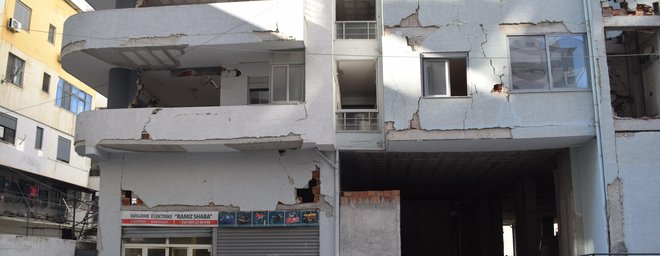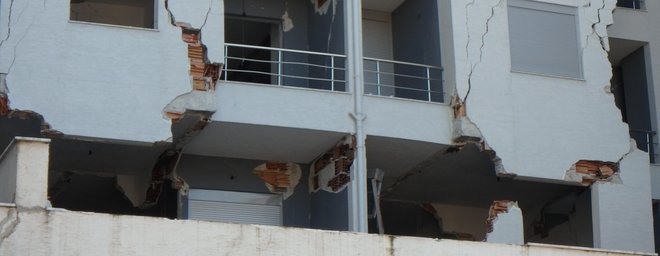

Forensic Structural Engineering database for HEI and pilot course with innovative and interactive learning methods

#RECONSTRUCT - Forensic Structural Engineering course to launch in 2027
An ambitious course, integrating forensic structural engineering with innovative teaching methods, is set to launch in 2027. Hosted in Italy, this international pilot elective course aims to blend in-person sessions with online components, targeting Master’s students and lifelong learners.
During a recent workshop in Aveiro, the project team outlined the course's framework, which emphasizes practical skills in identifying and analysing structural failures, combined with a robust understanding of legal frameworks. Key elements will include the application of technical and legal terminologies, development of investigation strategies, and hands-on experiences in identifying damage causes. The course design, inspired by Bloom's Taxonomy, will also include gamified elements such as educational escape rooms to enhance learning engagement.
Supported by an Erasmus+ Cooperation Partnership, the course aims to address the acute need for specialized knowledge in forensic engineering. The development process is backed by several European universities and includes contributions from noted academics and professionals in the field.
For more information: www.uni-weimar.de/reconstruct
English
Dear Ladies and Gentlemen,
Thank you for agreeing to participate in our survey. The purpose of this survey is to gather input for developing the framework of an international elective course syllabus in Forensic Structural Engineering.
All information will be consolidated and anonymized in accordance with European GDPR regulations (Regulation (EU) 2016/679).
The time required to complete the survey is approximately 10 minutes.
We would like to thank you in advance for your support!
The RECONSTRUCT European Team
Deutsch - German
Sehr geehrte Damen und Herren,
Vielen Dank für Ihre Mitwirkung an unserer Umfrage. Ziel dieser Umfrage ist es, Anregungen für die Entwicklung eines internationalen Lehrplans für das Wahlfach „Bauforensik“ (Forensic Engineering) zu erhalten.
Alle Informationen werden konsolidiert und anonymisiert in Übereinstimmung mit den europäischen GDPR-Vorschriften (Verordnung (EU) 2016/679).
Das Ausfüllen der Umfrage dauert etwa 10 Minuten.
Wir möchten Ihnen im Voraus für Ihre Unterstützung danken.
Das europäische Projekt-Team RECONSTRUCT
македонски - Macedonian
Почитувани Дами и Господа,
Ви благодариме на Вашето учество во оваа анкета. Целта на оваа анкета е да се соберат повратни информации за креирање и развој на наставниот план и програмата на меѓународен изборен предмет по форензичко инженерство на конструкции.
Сите информации ќе бидат синтетизирани и анонимни во склад со Европските GDPR регулативи (Регулатива (EU) 2016/679).
Времето потребно за пополнување на анкетата е приближно 10 минути.
Ви благодариме однапред за Вашата поддршка!
Од името на RECONSTRUCT проектниот тим.
Hrvatski - Croatian
Poštovane dame i gospodo,
zahvaljujemo što ste pristali sudjelovati u našem istraživanju. Svrha ovog upitnika je prikupiti povratne informacije za oblikovanje i razvoj nastavnog plana i programa međunarodnog izbornog predmeta Forenzičko inženjerstvo u građevinarstvu.
Svi podaci bit će objedinjeni i anonimizirani u skladu s europskim GDPR propisima (Uredba (EU) 2016/679).
Za ispunjavanje upitnika potrebno je otprilike 10 minuta.
Unaprijed zahvaljujemo na vašoj podršci!
Europski tim RECONSTRUCT
Italiano - Italian
Gentili signore e signori,
Grazie per aver accettato di partecipare al nostro sondaggio. Lo scopo di questo questionario è quello di raccogliere contributi per lo sviluppo della struttura di riferimento per un programma didattico internazionale per un corso elettivo in Ingegneria Strutturale Forense.
Tutte le informazioni saranno raccolte e rese anonime in conformità con la normativa europea GDPR (Regolamento (UE) 2016/679).
Il tempo necessario per completare il sondaggio è di circa 10 minuti.
Grazie in anticipo per il vostro supporto!
Il team europeo RECONSTRUCT
Português - Portuguese
Caros Senhoras e Senhores,
Obrigado por concordar em participar neste questionário. O objetivo deste inquérito é recolher contributos para o desenvolvimento do programa de um curso internacional em Engenharia Estrutural Forense.
Todas as informações serão consolidadas e anonimizadas de acordo com as regulamentações do RGPD europeu (Regulamento (UE) 2016/679).
O tempo necessário para completar o inquérito é de aproximadamente 10 minutos.
O nosso agradecimento pelo seu apoio.
A Equipa do projeto Europeu RECONSTRUCT
Attention
Disclaimer
Funded by the European Union. Views and opinions expressed are however those of the author(s) only and do not necessarily reflect those of the European Union or the German Academic Exchange Service. Neither the European Union nor the granting authority can be held responsible for them.



